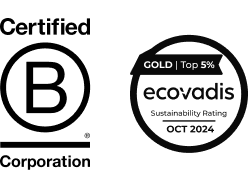The working world has been reshaped by hybrid work, evolving employee expectations, and a heightened focus on wellbeing. Now more than ever, the office is more than just a place to work, but a place to belong, connect, recharge, and learn. And at the heart of this transformation sits a humble yet powerful innovation: the office pod.
Modular, reconfigurable, and human-centred, office pods are quickly becoming the staple of forward-thinking workplace design. They provide privacy without isolation, flexibility without complexity, and focus without rigidity. But what makes them truly future-proof is their ability to support the fluid needs of today’s organisations and, more importantly, the people within them.
Movability: Empowering autonomy and agility
Movability isn’t a feature but a philosophy. In today’s dynamic work environment, the ability to reconfigure space with ease is essential. Whether it’s responding to a change in team size, project mode, or workstyle, movable pods provide instant adaptability.
The desire for spatial autonomy translates directly into the workplace, where employees crave environments that adapt to them, not the other way around, depending on their unique needs.
Movable pods allow teams to play with space layouts in real time, creating environments that support focused work in the morning, collaboration in the afternoon, and quiet rejuvenation at day’s end. It’s about enabling purposeful presence that gives people a reason to come in, because the environment helps them do their best work.
Flexibility: Supporting diverse workstyles and needs
accommodating different work modes, sensory needs, and cultural expectations. A soundproof booth for quiet focus. A casual, soft-seated pod for relaxed one-to-ones. A tech-integrated capsule for hybrid meetings where remote and in-room participants feel equally engaged.
Research shows that active learning environments — where people have control over layout, posture, and setting — lead to greater cognitive, emotional, and behavioural engagement. The same principles apply to the workplace.
This is especially critical for neurodiverse employees. For some, acoustic control and visual privacy aren’t just “nice to have” but essential to feeling comfortable and performing at their best. Flexible pods can be tailored to these needs, contributing to a more inclusive environment and signalling that every employee matters.
Employee experience: The real ROI
While the benefits of pods are tangible — better acoustics, more privacy, space efficiency — their real value lies in how they enhance the employee experience.
In today’s competitive talent market, people expect more from their workplace. For Gen Z, who now make up a third of the global workforce, learning opportunities, work-life balance, and alignment with values are top priorities. And they’re not afraid to walk away if those expectations aren’t met.
Pods support these expectations by enabling:
🧑🏼💻Autonomy: Choice of space empowers people to work how they work best.
🤝 Belonging: Pods offer psychological safety, helping people feel seen and supported.
🔎 Focus: Dedicated spaces reduce distractions, boosting output and mental clarity.
🧘🏾 Wellbeing: Pods create restorative micro-environments that support emotional health.
When people feel better at work, they perform better. And when they perform better, organisations thrive.
Designing with the future in mind
As more companies embrace pods as part of their workplace toolkit, it’s crucial to think beyond form and function.
The future-ready pod is:
✅ Tech-enabled: These pods, like the Eden pod from Boss Design, boast built-in power, screens, and camera-ready layouts for seamless hybrid collaboration.
✅ Acoustically optimised: Booths like Orangebox’s Be my guest ensure both speech privacy and sound clarity.
✅ Sustainable: Booths like JDD’s Nita Den are manufactured responsibly using sourced materials and designed for disassembly and reuse.
✅ Movable yet stable: Easy to relocate, but structurally sound and secure, pods like Steelcase’s Flex Kiosk are lightweight and adjustable.
Insightful Environments’ approach: People first, always
At Insightful Environments, we believe that office pods are not just pieces of furniture. They’re strategic tools for driving productivity, wellbeing, and cultural cohesion. We’ve worked with clients across sectors to integrate these pods not as standalone units, but as part of a connected ecosystem that’s aligned to workflows, culture, and spatial strategy.
We don’t start with products, but with people, and begin by asking:
- How do your people work now and how do they want to work?
- What moments in the day need more privacy, more focus, or more energy?
- Where are the gaps between intention and experience?
From there, we help you identify the right types of pods, locate them strategically, and align them with broader workplace goals, whether that’s attracting talent, supporting hybrid teams, or accelerating innovation.
We bring together insight, design, and world-class furniture partnerships (including Steelcase) to deliver spaces that are transformational as much as they are functional.
Conclusion: Modularity is the new strategy
As we look ahead, one thing is clear: static, one-size-fits-all offices are relics of the past.
The future of work is dynamic. It’s diverse. And it’s deeply human.
Office pods are more than just a response to the need for quiet space. They represent a mindset shift towards flexibility, autonomy, and experience-led design. When deployed thoughtfully, they support the moments that matter most in the workplace: the spark of collaboration, the clarity of deep focus, the safety of solitude.
It’s time to move beyond fixed desks and cubicles and think modular because the organisations that thrive tomorrow are designing for change today.
Explore our New Products Ideas Book for inspiration, or contact our team to find out how modular solutions can support your future workplace.













